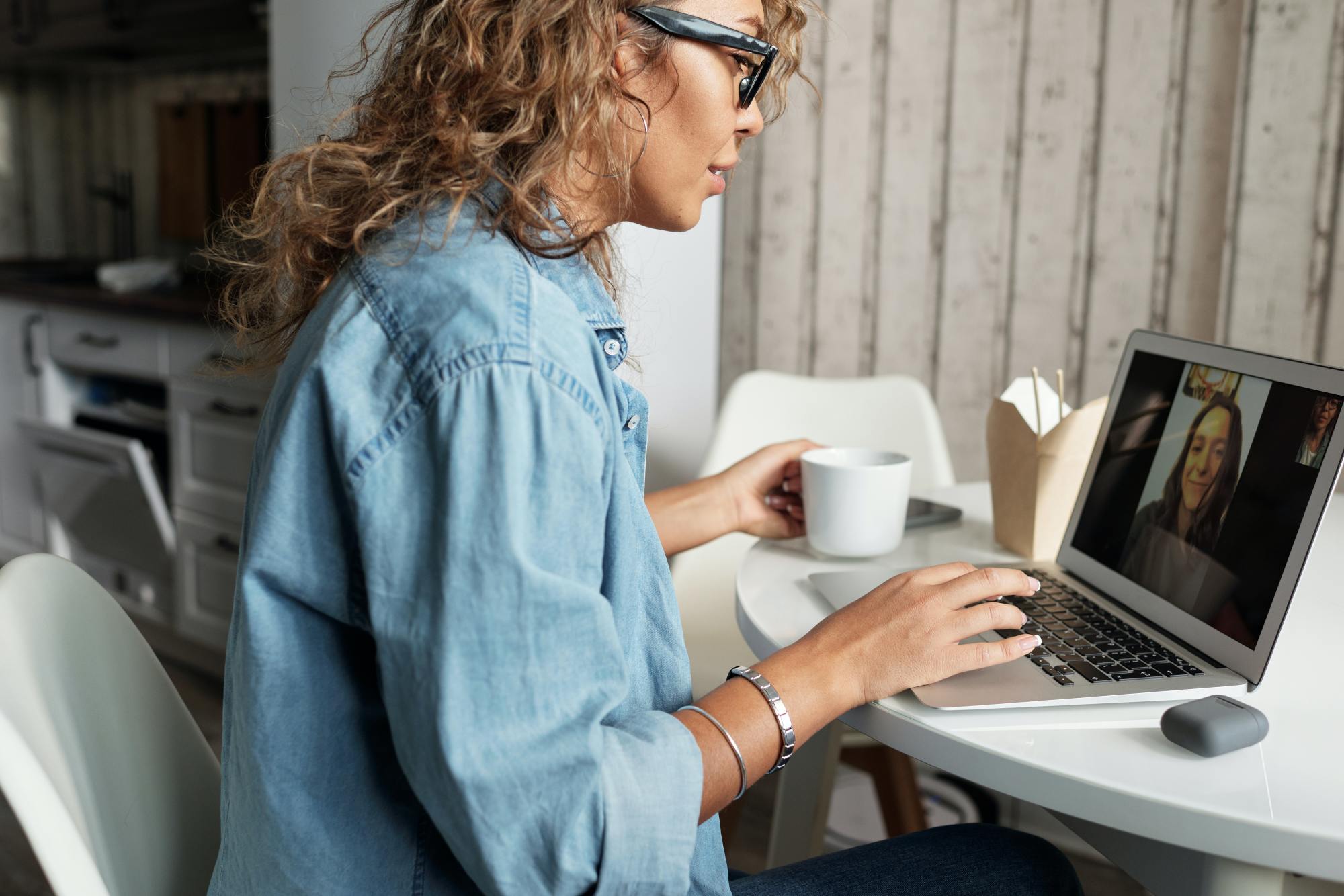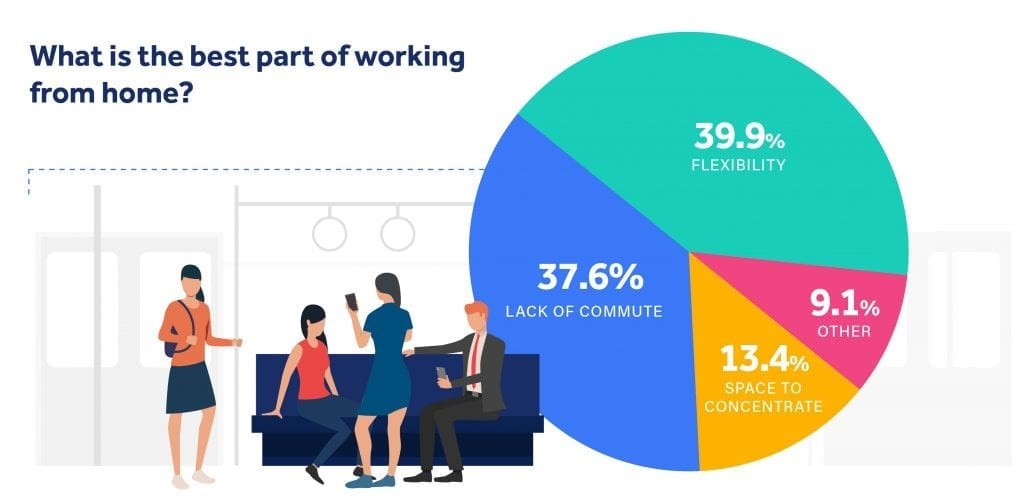Research Shows Risks Of COVID-19 Home Working Revolution
In a study conducted on behalf of the Advance Workplace Institute (AWI), trust, social cohesion and information sharing are all elements vulnerable to damage during home...
Read Full Article
In a survey of 447 workers, 60 per cent said they’d prefer to work from home, even post-lockdown.
COVID-19 has forced businesses across the globe to work remotely and this data could spell the end of the traditional office as we know it.
Adzooma, a digital marketing platform, identified that 93.3 per cent of people can perform their job as normal, from the comfort of their own home. Over half (60 per cent) of people surveyed said they would like to work from home if they had the choice. What’s more, 52.6 per cent said they don’t want to return to a normal office after COVID-19.
“There are a number of obvious benefits – not having the stress of a commute, being able to have more relaxing sleep as there is less time pressure, and not having the stress of being observed all day and feel like you have to put on a show, especially if you’re struggling.”
–Paul Ansorge
Psychotherapist
For the majority of people surveyed, working at home is has been an enjoyable experience, with 83.5 per cent of respondents admitting that they enjoy working at home, even during a global pandemic.
When asked the reason why working from home has been enjoyable, 39.9 per cent said the flexibility it brings, whilst 37.6 per cent said the lack of commuting, followed by 13.4 per cent admitting they liked having the space to concentrate.
Other responses included not having to keep up a ‘work persona’, wearing comfortable clothes, fewer interruptions, and having “a workspace that is perfectly set up for my needs”.

Picture: A pie chart demonstrating that 39.9 per cent of people surveyed prefer working from home due to the flexibility it brings, whilst 37.6 per cent said the lack of commuting, followed by 13.4 per cent admitting they liked having the space to concentrate.
According to the data, 67.6% of respondents said they are more productive when working at home, potentially due to fewer distractions. However, 63.6% of respondents admitted that they miss aspects of working in an office.
When asked what they missed most about the office, 43.1% of people said socialising, with other answers including face-to-face meetings (15.7%), communication with others (14.8%), and structure (10%).
One of the most popular responses was a call to continue working from home for the majority of the week, coming into the office for two days to meet others, socialise and brainstorm new ideas.
The survey also took into account how staying at home may affect people’s mental health.
To get a deeper understanding of this subject, Adzooma interviewed psychotherapist Paul Ansorge on his view on the effects of working at home.
He commented: “There are a number of obvious benefits – not having the stress of a commute, being able to have more relaxing sleep as there is less time pressure, and not having the stress of being observed all day and feel like you have to put on a show, especially if you’re struggling.
“However, the aforementioned lack of social contact would be the key negative – as well as a kind of ‘four-walls’ syndrome of a lack of variety of environment.
“If you do work from home, compensating for both these things with your non-work time is pretty crucial!”
Picture: A photograph of a person working at their desk, on a video conference call
Article written by Ella Tansley | Published 11 June 2020
In a study conducted on behalf of the Advance Workplace Institute (AWI), trust, social cohesion and information sharing are all elements vulnerable to damage during home...
Read Full ArticleSOCOTEC, a UK provider of testing, inspection and compliance services is providing advice for employers on the recently updated HSE guidance document on lone...
Read Full ArticleEmployees in England are no longer being asked to work from home, as the government removes Plan B rules. But is this change as simple as encouraging a mass return to the...
Read Full ArticleFor some, Freedom Day marks a much-awaited return to some of our pre-pandemic habits, including working at the office instead of at home. But is everyone keen to come...
Read Full ArticleAround half of UK office workers feel confident about returning to work without a fully vaccinated workplace. Research shows that 80 per cent of UK office...
Read Full ArticleWith businesses already putting plans in place to get people back into the office, ensuring good hygiene practices is paramount in preventing any spread of coronavirus in...
Read Full ArticleA smart-monitoring technology company has launched a wearable smart tag designed to make social distancing easier. The body-worn Orbi-Trace smart tag gives the...
Read Full ArticleBureau Veritas is stressing the need to carry out indoor air quality surveys, swab-sampling programs and quantification of fresh air assessments, to ensure premises...
Read Full ArticleIn an address to MPs today, Boris Johnson has tightened COVID-19 restrictions in England, calling on people to work from home where possible and pausing plans for...
Read Full ArticleBoris’ new rule of six doesn’t apply to workplaces, but how might the tightening of lockdown measures affect general confidence when returning to...
Read Full Article